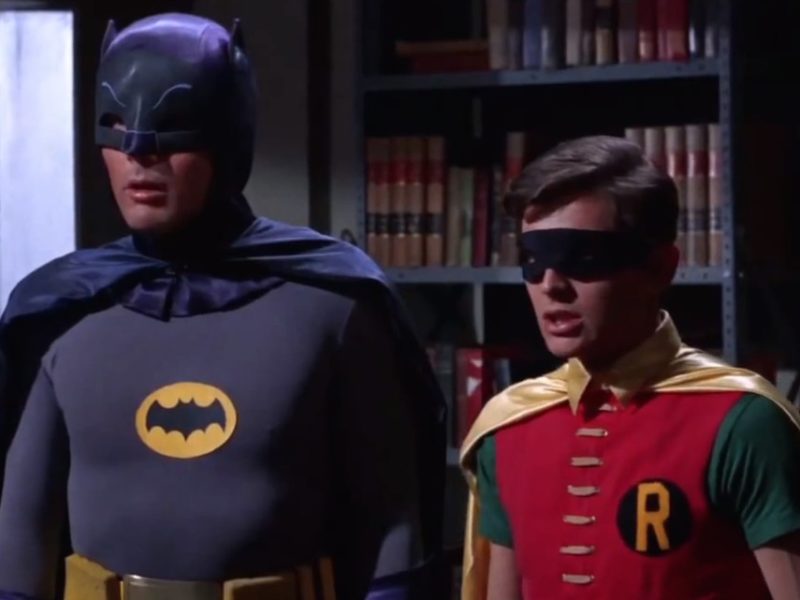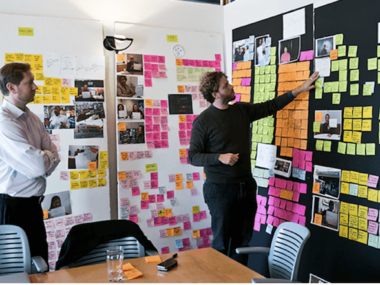“It’s not whether you get knocked down, it’s whether you get up.”
— Vince Lombardi
Batman & Robin. Thelma & Louise. Han Solo & Chewbacca. Mulder & Scully. Holmes & Watson.
The greatest duos are formed by smart individuals who do their best work together — a partner in crime amplifies our superpowers. Together we achieve much more.
Changing the world is not easy — we can’t do it on your own. Whether you want to increase your team’s productivity, learn a new skill, or adopt new habits, we can all use some help. We shouldn’t wait until we are in trouble to find our duo.
An accountability partner dramatically increase your chances of success. Do you have one?
Why You Need a Dynamic Duo
“If it doesn’t challenge you, it won’t change you.” — Fred Devito
Most executives don’t know what they don’t know. An accountability partners doesn’t just bring the best out of ourselves—she/ he turns our blind spots into brightspots.
Sherlock Holmes is the most famous fictional detective ever created. He is witty and possesses a profound observation and deductive reasoning. However, Holmes is also known for being quite a guarded and eccentric person.
On the other hand, Watson is quite open and friendly. He makes Sherlock more cooperative and ‘translates’ his thoughts so ordinary people would understand — they balance each other out.
Duos achieve more together. It is not just the brilliance of Sherlock but the Watson-Holmes duo that solves all mysteries.
Achieving goals or changing habits demand more than time and effort — you must overcome your internal resistance as well. That’s where a great partner comes to play.
Social commitment dramatically increases your odds to achieve a goal.
A study by the Association for Training and Development (ATD) found that you are 65 percent more likely to meet a goal after committing to another person. If additionally, you establish an ongoing partnership, your chances increase to 95 percent.
However, an Accountability Partnership can do much more than help you stay on track — it can become a mutual learning experience.
Research by Barry Zimmerman discovered that focusing on the outcome alone (i.e., a score) is not the most effective to improve our performance.
He discovered while training students to throw darts and compared results from three groups. Group #1 was told to focus on achieving the highest goal possible. Group #2 was said to focus on optimizing the process by bringing their arm back and adjusting the angle of throw. Group #3 was a hybrid one — players started in Group #2 and then moved to #1.
Surprisingly (or not) the group that focused solely on the score performed the worst! To improve your game, you have to master the process in addition to having clear goals.
You accountability partner illuminates your blind spots too — you get to see what you are missing. Your duo can turn into your best mirror.
Your sidekick will help you find the answers within. When things go wrong, we all tend to play the blame game. Your duo will challenge you to take ownership instead of looking for a scapegoat.
Lastly, you duo will call out your BS. Keeping you honest is another benefit of having a partner in crime.
Building A Successful Partnership
During my executive offsites, I coach participants to develop their duo relationships — reciprocal accountability is key to increase team performance. Leaders should have a duo too.
Steve Jobs & Steve Wozniak. Bill Hewlett & Dave Packard. Ben & Jerry’s. Larry Page & Sergey Brin. Successful duos build successful companies.
A duo is a reciprocal partnership — you have to be willing to give and take. Your partner is not friend, but someone who will help you improve your game. Find someone who will challenge your thinking.
Take the X-Files’ protagonists, for example. They couldn’t have been less alike.
Fox Mulder is an FBI agent who wants to believe in potential paranormal activities. Dr. Dana Scully prides herself on her skeptical nature — objectivity is of the utmost importance to her. Mulder, on the other hand, is more abstract, intuitive, and obsessed with ‘crazy’ theories.
Over time, they became a dynamic duo in spite of their differences. Scully kept Mulder in check. In turn, he taught her to look beyond the scientific approach — some things cannot be understood rationally.
Building a dynamic duo is not easy: it takes time to grow a successful partnership.
Consider the following steps.
1. What’s your superpower? And your kryptonite?
Start by assessing what you are trying to fix. What makes you strong? List all your strengths, knowledge, what you love to do, what makes you feel comfortable — anything that you are good at. What slows you down? Capture your weaknesses, fears, what you avoid doing — anything that limits your potential. Your superpower and kryptonite are neither bad or good; the way you use them can be healthy or not.
2. Find a partner who’s your opposite
You learn more from those who think differently. Remember, famous duos balance each other out. That’s why it’s vital to assess your superpower and kryptonite. Be open to being challenged.
3. Try before you buy
Before committing to a more extended engagement, both parties can benefit from a trial period. Spend some time together, share mutual feedback, and see how it works.
4. Define your goals
Be honest and clear. What do you want to achieve? By when? How will you know you’ve reached your objective? The more specific your goals, the higher the chances of succeeding.
5. Establish clear rules upfront
What kind of relationship do you expect? Define a meeting frequency and method (in person, email, Skype, etc.). Agree on the feedback style — some people want reinforcement, others need pushback. Do you like detailed feedback or the headline? Do you expect advise or just to be listened to?
6. Create a mutual code
Some people don’t want being reminded about a recurring issue — having a code is a powerful way of addressing the ‘thing’ without mentioning it. You can use a humorous metaphor to make it less tense. Or a signal or gesture to drive awareness without calling out your partner in public.
7. Be flexible
Changing a behavior or developing a new habit is not a linear process. Be open to reflect on the progress and make necessary adjustments. Remember, it’s a reciprocal partnership — reconcile mutual expectations, not just yours.
Remember, no one changes the word alone. An Accountability Duo dramatically increases your chances to succeed — you will stay open, motivated and focused.
Your duo is a sounding board too — the pain is yours, but the other person’s support will help you cope with it. It’s time to find yourself a partner.
This post was originally published on Psychology Today.
About the Author
Gustavo Razzetti is a change leadership speaker, author, and consultant. He helps organizations build a culture of change by developing self-awareness, creativity, and resilience. Gustavo is the author of “Stretch for Change” and “Stretch Your Mind.”











